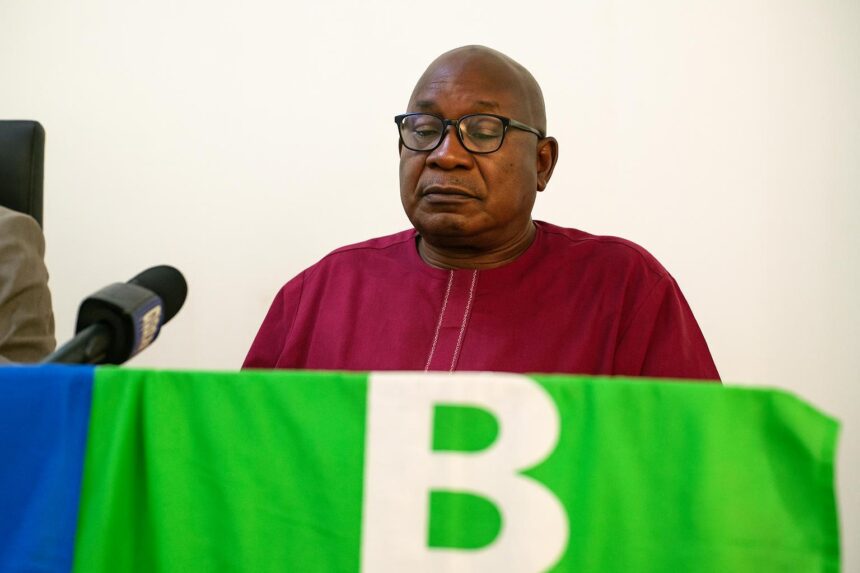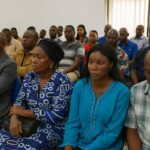Championship Pause Raises Alarm
The floodlights of the national league have stayed off for more than a year, and FECOFOOT president Jean-Guy Blaise Mayolas says the clock is ticking. “Another blank season would be disastrous for everyone,” he told Ligue 1 and Ligue 2 officials on 29 October 2025.
The executive committee fears that young talent may drift abroad or abandon the sport if the hiatus continues. Coaches worry about match fitness, and regional observers note that neighboring leagues already scout Congolese players hungry for competition.
Stadium Closures at Heart of Dispute
All major arenas remain locked under a ministerial decision citing safety upgrades. FECOFOOT argues the works have dragged on without a clear timetable. Letters exchanged with Sports Minister Hugues Ngouélondélé produced no breakthrough, and both sides trade accusations of mismanagement (local federation correspondence).
Club directors say they understand the need for safe venues, yet insist that inspections could focus on stands while letting matches resume behind limited attendance, a formula used during previous health restrictions.
Financial Squeeze on Clubs and Players
Without ticketing or broadcast income, teams rely on scarce private donations. Some outfits struggle to pay monthly stipends; a few have already released senior players. “We keep training, but morale drops when salaries delay,” admits a Pointe-Noire midfielder who asked to stay anonymous.
Economists estimate the football ecosystem—vendors, transporters, kit suppliers—supports thousands of informal jobs. A second silent season could trigger layoffs that hit urban youth hardest, reinforcing FECOFOOT’s plea for rapid solutions.
Ignié Technical Centre Emerges as Lifeline
Facing closed city stadiums, FECOFOOT has drafted a plan to stage the entire Ligue 1 calendar at the national technical centre of Ignié, 45 kilometres north of Brazzaville. Two FIFA-certified pitches, dormitories and medical rooms are already on site.
Mayolas says the federation would bus teams in weekly, with security and health protocols mirroring continental standards. “It is not luxury, but it keeps competition alive,” he explained, adding that FIFA had signalled readiness to release solidarity funds for logistics.
Private Sponsors Waiting on Kick-Off
Telecom and beverage brands reportedly offered to back broadcasts from Ignié, provided a firm start date is announced. Marketing manager Lucie Mavoungou notes that advertisers crave local content: “Live games engage millions on mobile. We need the league back on screens.”
Streaming companies exploring low-cost data packages for match days view the compact Ignié set-up as ideal for production crews. Rights revenue could funnel back to clubs, cushioning travel and wage bills until regular stadiums reopen.
Dialogue with Ministry Seen as Key
Despite the Ignié alternative, formal clearance still rests with the Ministry of Sports. A high-level meeting is expected within days. Observers sense room for compromise, as both sides publicly affirm commitment to athlete welfare and national prestige.
Analyst Florent Okoï argues that transparent calendaring and joint inspection reports could reset trust: “Fans do not care who signs the letter. They want a ball rolling, goals, and hope.”
Fans Fear for International Presence
If no domestic season starts by early 2026, Congo risks forfeiting its spots in CAF Champions League and Confederation Cup. Supporter groups already budgeted road trips; now they face refunds. “Continental nights put our flag on TV,” laments Brazzaville super-fan Émile Mantsima.
The national team also depends on league rhythm to evaluate prospects. Coaches traditionally promote breakout performers from local clubs during qualifiers. An empty calendar narrows the talent funnel and complicates preparations for regional tournaments.
A Heritage Worth Protecting
From Diables Noirs to CARA, the Congo’s storied clubs built memories that bind generations. Former striker François Nganga recalls packed stands in the 1990s: “Football united us after school and work. Keeping it alive is bigger than today’s quarrels.”
Stakeholders agree that the current stand-off must not overshadow decades of community investment. Whether matches resume in modern arenas or on the Ignié turf, players and supporters say the whistle should blow soon, reviving chants, livelihoods and a nation’s favourite weekend ritual.





















